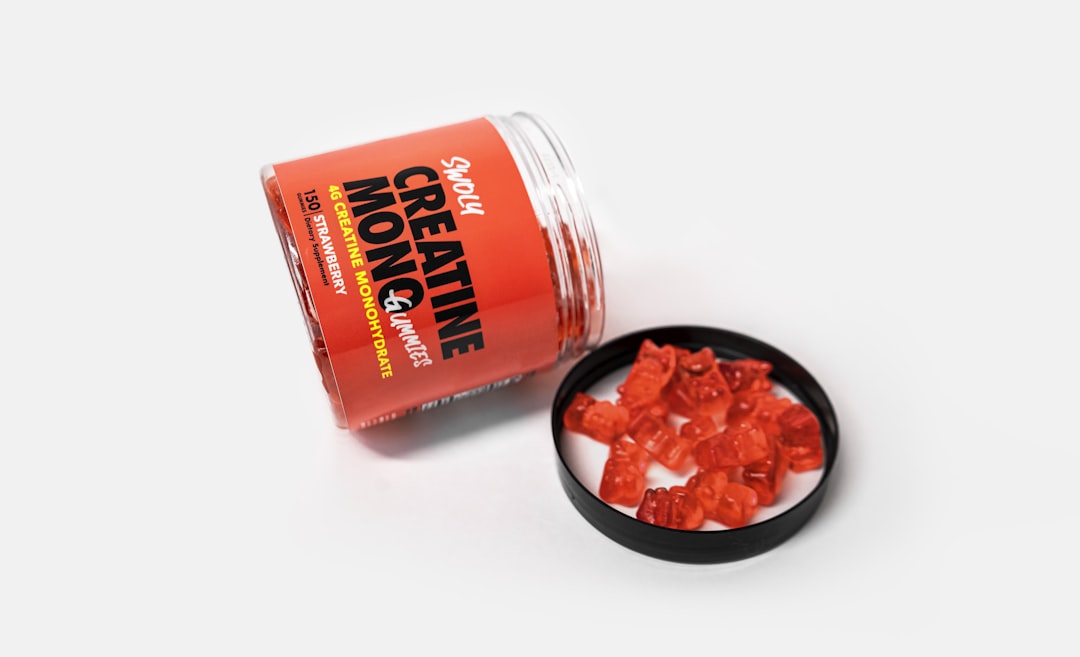
Unleash Your Brain's Potential: The Surprising Impact of Creatine Monohydrate on Brain Health
When people think about creatine, they often envision athletes loading up on it before hitting the gym. This popular supplement is widely recognized for its benefits in enhancing physical performance, but recent studies are shedding light on its incredible potential for supporting brain health. In this blog post, we will explore creatine monohydrate, its benefits for cognitive function, and how you can incorporate this powerhouse supplement into your routine.
What is Creatine Monohydrate?
Creatine monohydrate is a naturally occurring compound found in small amounts in certain foods, such as red meat and fish, and is also synthesized by the human body from amino acids. It plays a pivotal role in the production of adenosine triphosphate (ATP), the energy currency of cells. Athletes and fitness enthusiasts commonly use creatine supplements to boost their performance, increase muscle mass, and reduce fatigue. However, its benefits extend far beyond just physical performance.
The Link Between Creatine and Brain Function
While traditionally associated with muscle health, creatine is increasingly being recognized for its impact on cognitive function. Here’s how it works:
1. Energy Production in the Brain
The brain is an energy-hungry organ, requiring substantial amounts of ATP to function optimally. Low ATP levels can impair cognitive performance and can be linked to problems like fatigue, poor memory, and a decline in overall mental clarity. Given that creatine monohydrate enhances the availability of ATP, it becomes evident that it plays a crucial role in maintaining brain health and combating fatigue.
2. Neuroprotective Properties
Recent studies have suggested that creatine supplements may possess neuroprotective properties. Research indicates that creatine may help safeguard neurons from damage caused by stress, lack of oxygen, and trauma. This could play a significant role in reducing the risk of neurodegenerative diseases and cognitive decline as we age.
3. Improving Cognitive Performance
Creatine has shown promise in improving various cognitive functions, especially under conditions of mental fatigue. Some studies demonstrate that individuals taking creatine monohydrate can perform better on tasks requiring short-term memory and high mental effort compared to those who do not supplement with creatine. This could be particularly beneficial for students, professionals, and anyone needing to stay sharp and focused.
Creatine Benefits for Mental Health
The benefits of creatine extend into the realm of mental health, with emerging research suggesting that it may help alleviate symptoms of certain mood disorders. Here are some noteworthy mechanisms:
1. Enhancing Mood and Reducing Depression Symptoms
Some studies have found that individuals with major depressive disorder can experience significant improvements in mood when supplementing with creatine monohydrate. The exact reasons for this are still being investigated, but it’s believed that the added ATP supply might help restore energy levels within depressed individuals.
2. Cognitive Resilience during Stress
In stressful situations, those who use creatine supplements may have an edge over their peers in terms of cognitive resilience. Enhanced energy availability can lead to better decision-making, memory processing, and emotional regulation. This is especially valuable for individuals facing high-pressure situations.
How to Incorporate Creatine Monohydrate into Your Routine
If you’re looking to harness the benefits of creatine for both physical and cognitive health, here are some tips for integrating it into your daily routine:
1. Choose the Right Form
While there are various types of creatine available, creatine monohydrate is the most studied and widely recommended due to its effectiveness and cost-efficiency. Look for high-quality creatine supplements that meet purity standards to ensure you’re getting the best product.
2. Dosage Recommendations
The typical dosage for achieving performance benefits ranges from 3 to 5 grams of creatine monohydrate per day. For cognitive benefits, sticking to a consistent daily intake is key for optimal results. Consider cycling on and off after several weeks if desired.
3. Timing Matters
While the timing of creatine intake isn’t as crucial as consistent daily intake, some prefer to take it before workouts or alongside meals containing carbohydrates to enhance absorption. Experiment to see what works best for you.
Beyond Performance: The Broader Implications of Creatine Use
The growing interest in the cognitive effects of creatine adds an exciting dimension to the conversation around supplementation. As more studies emerge, we may find that creatine monohydrate is not just a supplement for athletes, but a crucial component of healthy brain aging and mental performance enhancement.
1. Future Research Directions
As the landscape of nutritional science expands, researchers are keen to further understand the full spectrum of creatine benefits, especially regarding its neuroprotective properties. New studies on populations with neurological diseases, age-related cognitive decline, and mental health conditions could provide invaluable insights into the widespread applicability of creatine.
2. Embracing Holistic Health
The potential for creatine supplements to boost brain health encourages us to think holistically about overall well-being. Combining supplements with healthy lifestyle choices such as a balanced diet, regular exercise, and mental stimulation can lead to optimal health outcomes.
Final Thoughts: Unlocking Creative Pathways for a Healthier Mind
When it comes to brain health, the implications of creatine monohydrate extend far beyond its gym-centric reputation. As a powerful supplement that offers cognitive and neuroprotective benefits, it can serve as a valuable tool in enhancing your mental acuity and resilience. Whether you're a student seeking better focus, a working professional in high-stress environments, or someone looking to maintain cognitive functions as you age, consider embracing creatine as a functional addition to your supplement regimen. Explore the world of brain health and start on the journey toward optimal mental performance today!





